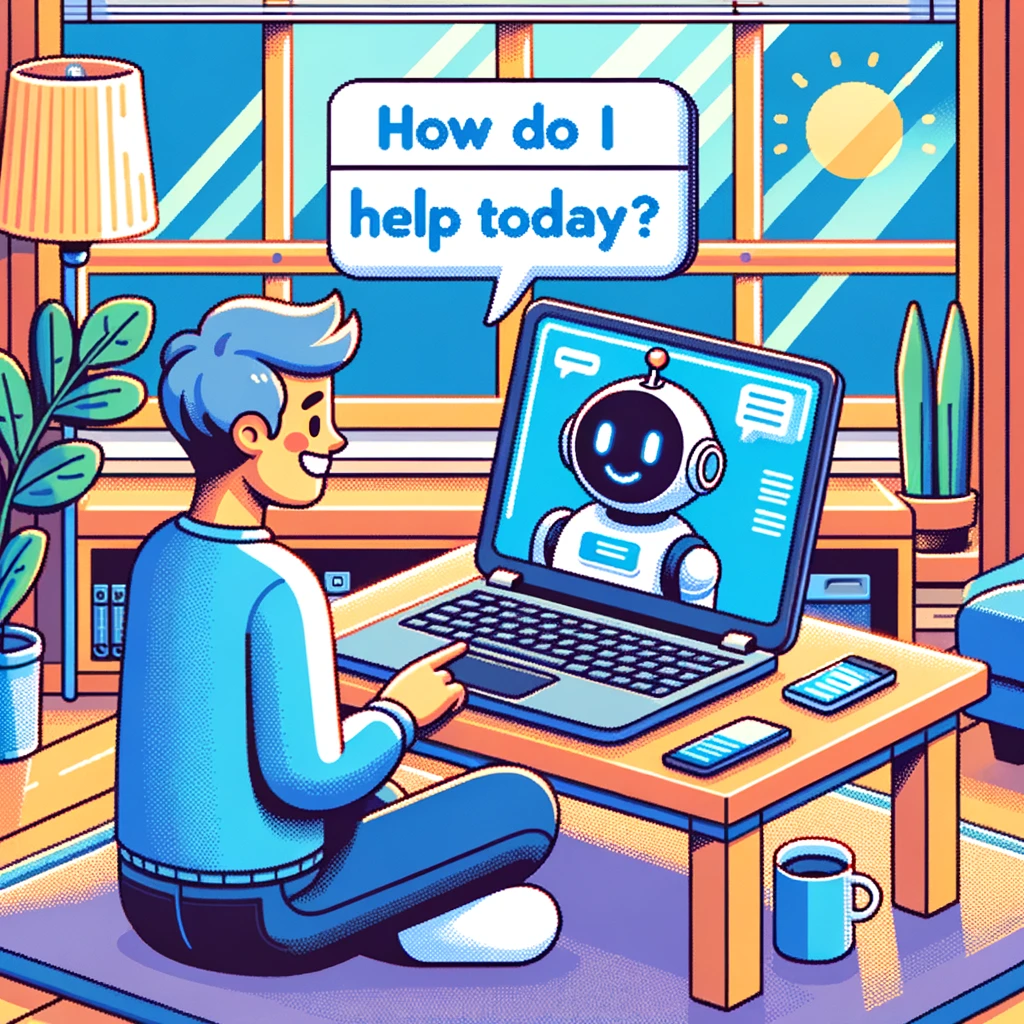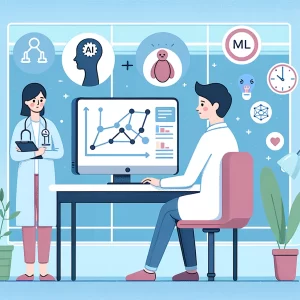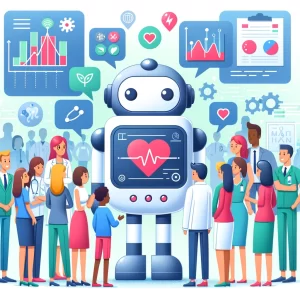
How Artificial Intelligence is Revolutionizing Online Therapy
Mental health challenges affect millions, yet many face barriers to accessing care. The COVID-19 pandemic amplified these obstacles, urging the medical community to seek innovative, scalable solutions. One promising frontier? Artificial intelligence (AI).
A recent comprehensive study synthesized existing research on how AI is enhancing online mental health care, specifically in addressing adherence issues and high dropout rates. This article will delve into these findings and explain how AI-powered chatbots and predictive models could reshape mental healthcare as we know it.
Traditional in-person therapy is often limited by long, long wait times, geographic restrictions, and a shortage of mental health professionals. Even online therapy, though more accessible, struggles with high dropout rates and inconsistent treatment adherence. These challenges have driven researchers to explore how AI can optimize online mental healthcare.
How AI Improves Access and Efficiency:
- Predictive Models for Treatment Adherence: Machine learning algorithms analyze user behavior and data to predict treatment adherence, tailoring interventions to improve patient engagement. By identifying who is likely to drop out, healthcare professionals can provide extra support to at-risk patients.
- Intelligent Chatbots: These AI therapists can engage users in human-like conversations, providing support and delivering therapeutic content. They offer cognitive behavioral therapy (CBT), acceptance and commitment therapy (ACT), and psychoeducation, creating a scalable solution that maintains user satisfaction.
- Monitoring and Personalization: AI tools continuously monitor patient progress, adjusting treatment plans for optimal results. This level of personalization enhances user experience and fosters a more engaged, effective therapy process.
Significant Findings from the Research:
- Efficacy in Reducing Symptoms: The study’s meta-analysis demonstrated that AI-driven interventions show medium to large effects in reducing depression and anxiety symptoms, with dropout rates comparable to non-AI interventions.
- User Satisfaction: Up to 90% of users find these AI-driven tools helpful and encouraging, reporting that the bots felt like “friends” or were “empathetic.”
- Triage and Treatment Matching: AI’s predictive capabilities help match patients to the most suitable form of therapy, significantly reducing wait times and improving treatment outcomes.
Challenges and Limitations:
Despite their potential, AI applications still face several challenges:
- Therapeutic Alliance: Some believe the empathetic relationship between therapist and patient may be lost, which could undermine treatment effectiveness. As someone who did direct therapy for 10ish years, the connections made between the client and the therapist (the working relationship, is so important).
- Language Understanding: Chatbots struggle with idioms and slang, which could reduce patient engagement.
- Biases and Ethical Concerns: Data biases can lead to unequal treatment outcomes, particularly for marginalized groups.
- Quality of Research: The evidence quality remains low, highlighting the need for more comprehensive, high-quality trials.
Future Directions:
- Improving Research Quality: More high-quality randomized controlled trials are needed to establish the efficacy and safety of these interventions.
- Open-Source Datasets: Developing large, open-source datasets will benchmark future research, improving the robustness of AI models. As many reader know, we are big, big fans of open data. (which reminds me that you should sign up for the Data is Plural newsletter)
- Closing the Digital Divide: Programs that provide internet access and technological literacy can help marginalized communities benefit from these advancements.
Conclusion:
Artificial intelligence has the potential to revolutionize mental healthcare by improving access, adherence, and personalization. Though research is still in its infancy, current studies highlight AI’s promise in reducing the burden of mental illness. With continued innovation and ethical oversight, AI could become a cornerstone of accessible, effective mental health care.
Discussion Questions:
- Do you think AI chatbots could provide a therapeutic relationship similar to human therapists, or is there something inherently missing from these interactions?
- How can AI tools address inherent biases in their training data to ensure equitable treatment across diverse populations?
Stay Ahead in Public Health – Get Your Weekly Update!
Want to lead in health advocacy and research? “This Week in Public Health” gives you important updates every week, helping you stay informed in the ever-changing world of public health. Our newsletter brings you news on the newest breakthroughs and projects, helping you be a leader. Subscribe for free and start playing a part in shaping the future of public health today!
About the Author
Jon Scaccia, with a Ph.D. in clinical-community psychology and a research fellowship at the US Department of Health and Human Services with expertise in public health systems and quality programs. He specializes in implementing innovative, data-informed strategies to enhance community health and development. Jon helped develop the R=MC² readiness model, which aids organizations in effectively navigating change.



